Belly Button Piercing During Pregnancy: Know The Risk
Learn how this stylish body adornment may pose a risk during the most beautiful time in your life.
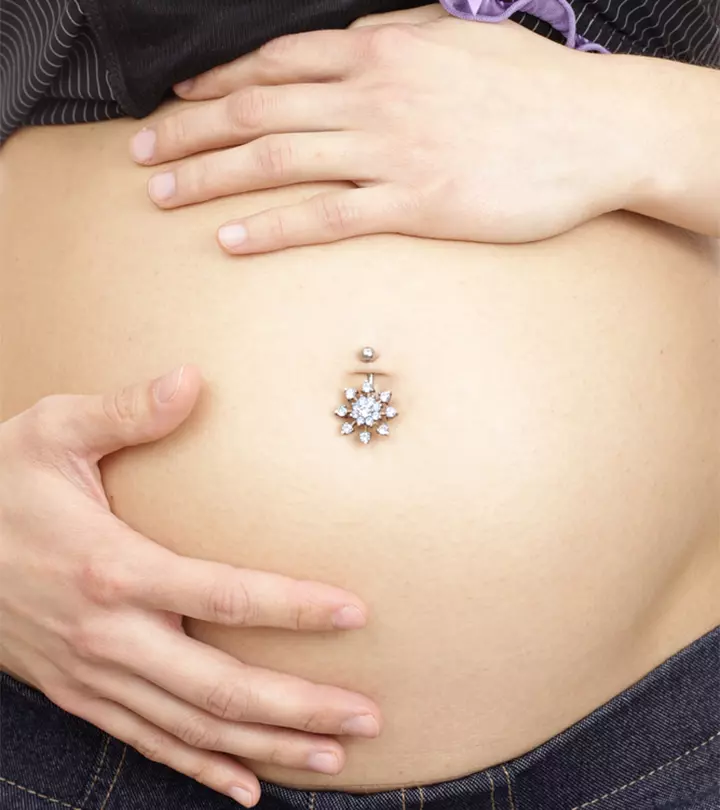
Image: Shutterstock
Pregnancy is a beautiful journey filled with excitement and anticipation. However, if you are fond of piercings and wondering whether to keep your belly button piercing during pregnancy, then read this article before you do so. Also known as the navel piercing, this small adornment is a form of self-expression that might hold sentimental value or memories for many individuals. However, the major concern around it is that as the belly expands to accommodate the new life, it may protrude or stretch the belly button. This, in turn, may affect the piercing site. In this article, we will dive deeper into all such concerns and more to help expectant parents make an informed decision. So, keep scrolling to learn more!

In This Article
Does Belly Button Piercing Affect Pregnancy?
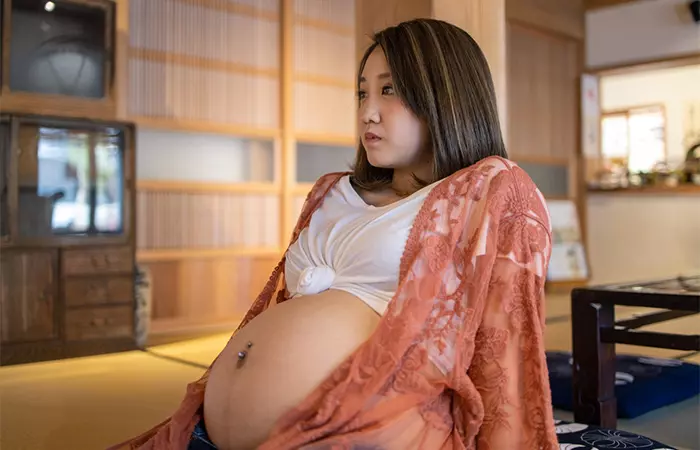
No, generally, a belly button piercing does not affect pregnancy, especially if it is fully healed and you take care of it well. However, there could be some concerns. Some of them are mentioned below.
- As your abdomen grows during the pregnancy to make more room for the baby, your skin becomes taut. This may put pressure on the piercing and may cause stretching.
- If the stretching leads to piercing pulling, it may lead to small tears and cause some discomfort, such as readiness, soreness, and irritation.
- If you touch these small tears with dirty hands, it may introduce bacteria to them and increase the risk of developing an infection.
- If an infection occurs, it may be difficult to treat due to the compromised immune system during pregnancy (1). It may also sometimes leave behind a scar.
- The piercing may also rub against your clothing and cause some discomfort.
Apart from this, a belly button piercing may also sometimes be a matter of concern during your delivery. If you are having a vaginal delivery, it will not get in the way. However, you may have to remove it for a cesarean section that requires an incision on the mother’s abdomen. Furthermore, even if you are planning for a vaginal delivery, the results may not always be in your favor, and you may have to opt for a C-section last minute. Therefore, it is recommended that expecting mothers remove their belly button piercing jewelry before their delivery.
 Did You Know?
Did You Know?Since there are no scientific studies about a completely healed navel piercing affecting pregnancy, many decide to keep it. If you are one of them, check out the next section for some tips you may follow while doing so.
Key Takeaways
- A belly button piercing does not directly affect pregnancy, but as the abdomen expands, the metal jewelry may cause tears that may cause discomfort and increased chances of infection.
- If you choose to keep your belly button piercing during pregnancy, ensure to keep it clean and consider replacing your regular jewelry with flexible belly rings to minimize discomfort and reduce the risk of complications.
- Professional piercers generally advise expectant mothers against getting new piercings, as pregnancy can suppress the immune system’s response and increase the risk of infections and complications.
- If you experience an infection in your belly piercing while pregnant, appropriate treatment may include keeping your belly button clean, warm compresses, and medication suggested by your medical professional.
Tips For Keeping A Belly Button Piercing While Pregnant
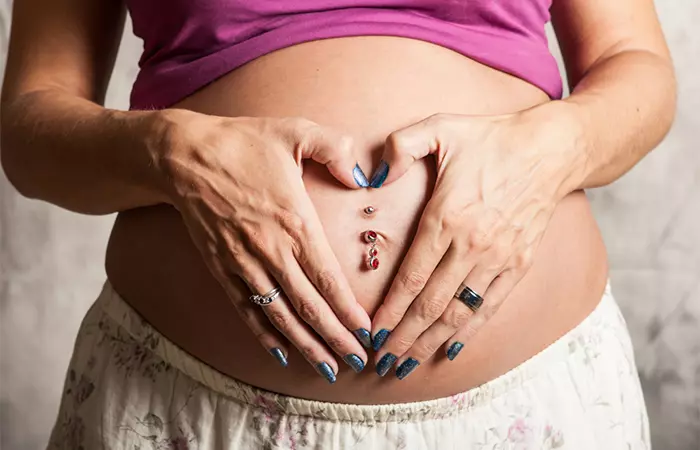
If you wish to keep your belly button piercing during pregnancy, it only requires some extra care and attention. Here are some tips that can help you with it:
- Always wash your hands before touching the piercing, as unwashed hands can easily introduce bacteria and increase the risk of infection.
- Clean your piercing regularly with saline solution or a mild antibacterial soap. Ensure to rinse thoroughly with warm water to remove any residue.
- Be gentle while cleaning your piercing and avoid harsh scrubbing or rotating the jewelry excessively.
- Opt for loose-fitting clothing and maternity pants with a lower band that will not rub against the belly button and put pressure on it.
- Refrain from stretching or tugging on your piercing, as this may cause discomfort and increase the risk of complications.
It is a good idea to pick jewelry pieces without any charms, as even these decorative elements are likely to snag on your clothing and irritate the piercing. Further, you can also consider switching to pregnancy belly rings made from flexible materials like PTFE (Teflon), bioplast, titanium, acrylic, or silicone. These body jewelry materials are not rigid like metals, making them a great alternative that accommodates your growing belly. This will also reduce the risk of your belly ring cutting into your skin as these materials are softer. They are ideal for sensitive skin as well.
Deborah Gilbert, a blogger, shared that she did not take out her belly jewelry during her pregnancy. She writes in one of her blog posts, “My belly button is no longer that high, well it might be if it was not attached to my less than taut skin. I miss that belly button. I still have my piercing in and I kept it through my entire pregnancy (the nurses in the delivery room commented on the fact that I still had it in) (i).”
Your body will undergo significant changes during pregnancy, and it is possible that your piercing may need to be removed at some point. The following section talks about what you can do while taking out a belly button piercing during pregnancy.
Tips For Taking Out A Belly Button Piercing When Pregnant
If you decide to take out your bothersome metal jewelry and are wondering when should you do it, the best time is as soon as you start feeling uncomfortable. However, before taking out your belly button piercing, try sliding the jewelry up and down. If you feel any resistance, it is recommended to go to a reputable piercer to get the jewelry removed. However, if you do not experience any discomfort, your piercing is probably fully healed. Generally, the healthy healing time for a belly button piercing is around 6-12 months. In such a case, you may follow these steps:
- Wash your hands with soap and water before touching your piercing to reduce the risk of infection.
- Clean the piercing area with saline solution before removing the jewelry. This will loosen any debris or dirt that may be stuck.
- Apply a small amount of any lubricant like petroleum jelly to the site to make the removal process easier.
- Most belly jewelry pieces come with a round bead that unscrews. Open it to remove the jewelry. Gently open it, as forcing it open may cause discomfort or injury.
- If you are having trouble seeing the piercing, use a mirror to help guide you and ensure you remove it safely.
- Once the bead opens, gently push the jewelry out through the piercing hole and clean the site with a saline solution or fragrance-free antibacterial soap and water to help prevent infection.
At this point, you may either wear bioplastic jewelry or keep your piercing jewelry-free. If you are worried that taking out the body jewelry entirely can close the piercing hole, your safest option is running a taper of the same gauge as your belly ring through it a couple of times every 6-8 days. Avoid using your belly ring, as its blunt and wide edge can be dangerous. Alternatively, you may opt for a flexible plastic belly bar. While choosing these, ensure that they are made from body-safe plastic material.
If you have a belly piercing during pregnancy, you may decide to keep or remove it, depending on your personal preferences. However, can you get piercings while pregnant? Let us find out if doing so is a good idea.
Can I Get A New Belly Button Piercing During Pregnancy?
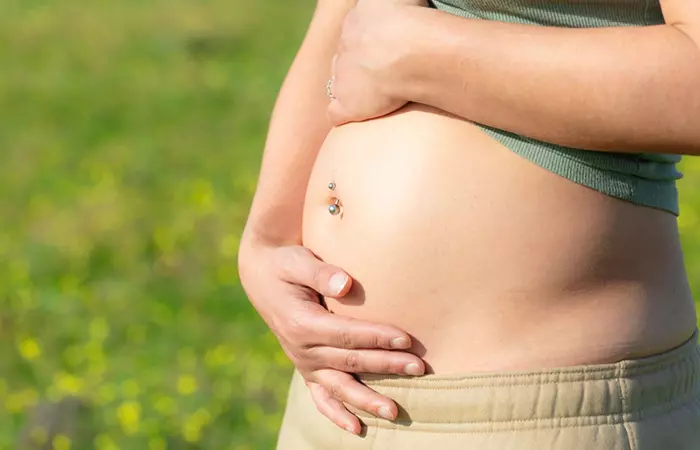
No, professional piercers do not generally recommend getting a new belly button piercing during pregnancy. It is even illegal in most countries, as it may pose the risk of infection to the fetus. Research also suggests that pregnancy may alter the body’s immune response, making the mother more susceptible to infections. To understand this, you should know that when a woman is pregnant, the fetus growing inside her womb has genes from both her and its father. This makes it kind of like a foreign object in the mother’s body, which can be compared to getting an organ transplant. Now, when a foreign body enters our body, the immune system tries to attack it. However, during pregnancy, it tones down its normal defenses against foreign stuff, specifically in the area where the baby is growing. This helps prevent the body from rejecting the baby. However, it may also affect how the body responds to infections (1).
Since belly button piercing procedures involve creating an open wound, the risk of it getting infected due to germs and bacteria is already there. And the mother’s suppressed immune system adds to this risk. This may turn out to be harmful to both the mother and the developing baby in the womb. Therefore, it is generally advisable to get a belly button piercing after pregnancy and postpartum healing.
Along with immune system suppression, there are several other reasons why it is advisable to avoid getting a new belly button piercing during pregnancy. The following section talks about them.
Here are some potential risks associated with getting a navel piercing during pregnancy you should know about.
May Result In Delayed Healing
As stated earlier, pregnancy may affect the body’s immune system. This, in turn, may affect its ability to heal efficiently and cause a significant delay in the piercing’s healing process (2). This extended healing time may further increase the risk of infections and the appearance of scars.
May Increase The Risk Of Allergic Reactions
Pregnancy may also involve allergic sensitization, wherein the expecting woman becomes more sensitive to allergens (3). This heightened sensitivity may also occur as a reaction to metals used in piercings. One such metal known to cause allergic reactions is nickel (4). Anecdotal evidence suggests that the sensitivity to it may increase further during pregnancy.
May Increase The Risk Of Blood-Borne Infections
If you get your piercing from an unregistered piercing studio and they do not use sterilized equipment for it, there is a risk of infections that spread by contact with contaminated blood. An example of this is hepatitis C, a viral infection that attacks the liver and leads to inflammation (5).
Pregnancy itself comes with various discomforts, and adding an infected piercing to the mix may only add to it. Therefore, it is recommended not to get a piercing if you are pregnant. But what if you get one before finding out about your pregnancy and what if it gets infected? Scroll down to the next section to find out what you can do.
How To Treat Infected Belly Button Piercing While Pregnant
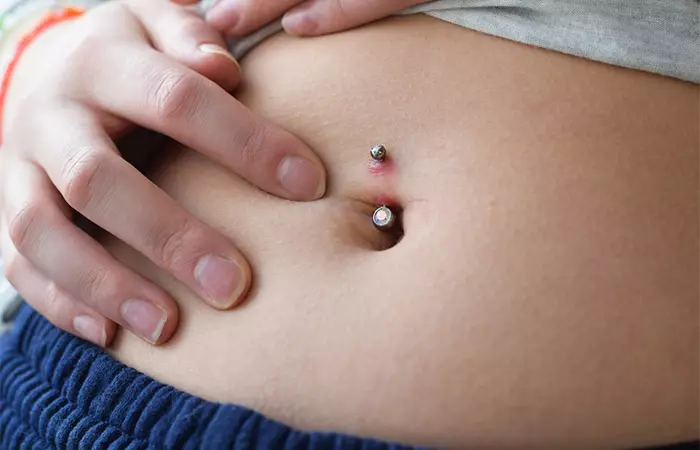
Before attempting any treatment for your belly button piercing infection, it is important to consult with your healthcare provider if you are pregnant. Here are some general steps your doctor might suggest you to follow:
Wash Your Hands
Before touching the piercing, wash your hands with soap and water to avoid introducing more bacteria.
Clean The Piercing
Clean the area around the piercing with a saline solution. For it, dip a clean cotton ball or swab in the solution and clean gently to loosen any debris. Rinse with warm water.
 Quick Tip
Quick TipApply A Warm Compress
Dip a clean cloth in warm water for a few seconds. Squeeze it gently to drain out the excess water and apply the cloth to the infected area for 10-20 minutes. While this may not treat the infection, it may help reduce the swelling.
Use Medication
Generally, it is not recommended to use any belly button piercing infection treatments while you are pregnant. However, if your doctor permits, you may use topical antibiotics to treat the infection. Apply it after ensuring the infection site is clean and dry.
Follow Precautions
Along with following the above steps, you may also follow these precautions to ensure quick healing (6):
- Avoid tight clothing, especially around the belly button area to avoid irritation.
- Avoid swimming in pools, hot tubs, or other bodies of water until the infection has cleared to prevent further irritation and exposure to bacteria.
- Avoid using alcohol, hydrogen peroxide, or chemical-laden soaps, as they can be too harsh and may delay the healing process.
- Even after your infection has healed, keep your belly button clean to prevent future complications.
Lastly, it is a good idea to keep an eye on the piercing for signs of worsening infection like increased redness, swelling, or pus with a foul odor. If you notice any of these symptoms, seek medical attention immediately.
Pregnant women undergo significant changes in their bodies, including weight gain and changes in the abdomen. These changes may cause belly button piercings to stretch. Read on to find out if it is possible to prevent this.
How To Prevent Belly Button Piercing From Stretching During Pregnancy?
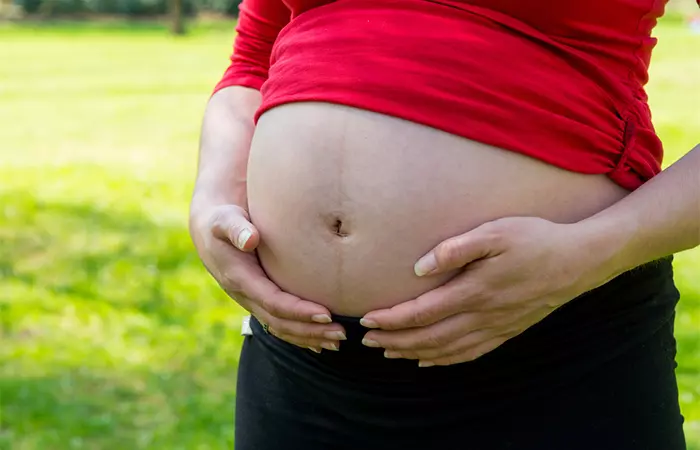
Due to the natural expansion of the skin during pregnancy, a piercing in the belly area stretches in all directions – upwards, downwards, and side to side. This results in a stretched-out look. Anecdotal evidence suggests that the only way to prevent this is by removing the belly button jewelry altogether.
However, if you do not wish to do so, you may consider replacing your adorable belly rings with pregnancy-friendly options like Bioplast, which are more flexible. Also, consider opting for navel jewelry with a longer bar to accommodate the potential expansion of your belly and prevent excessive pressure on the piercing. Some people also believe that using a tummy tuck on your postpartum pregnancy belly may also help reduce the stretching of the piercing site. However, there are no scientific studies behind this claim.
While belly button piercing during pregnancy may seem harmless, it carries significant risks and is illegal in most first-world countries. Therefore, expecting parents should carefully consider it. Your regular skin stretches during this phase, which may lead to the stretching of the piercing, as well. If you are wearing metal piercing jewelry such as a belly button ring during this time, this stretching may lead to tears and a potential risk for complications. You can easily avoid this by either removing your current jewelry or replacing it with a flexible belly bar to keep your piercing intact. Further, if you are thinking about getting a belly piercing with a baby on board, it might not be a great idea. Professional piercers usually recommend avoiding any piercings during pregnancy due to delayed healing, compromised immune system, and risk to the fetus. Therefore, consulting with healthcare professionals before deciding on any body modification during pregnancy is important. After all, your and your unborn child’s well-being depends on these important decisions you make throughout your pregnancy.
Frequently Asked Questions
Can I poke my belly button while pregnant?
It is generally safe to touch or gently poke your belly button while pregnant. However, it is important to be gentle and not apply too much pressure while doing so. Also, if you experience any discomfort or pain, even though it may differ from person to person, it is best to listen to your body and avoid any such actions.
Can hormonal changes during pregnancy affect my belly button piercing?
Yes, hormonal changes during pregnancy may potentially affect your belly button piercing, as they may affect how your immune system works. For instance, an increase in progesterone, a sex hormone that prepares the lining of your uterus for pregnancy, may tone down your immune system (1). This may increase the risk of a belly button piercing infection.
Can I get my belly button re-pierced if it closed up during pregnancy?
Yes, you may get your belly button re-pierced if it has closed up during pregnancy. However, it is recommended to wait until after you have fully healed from childbirth and any postpartum complications before considering piercing again.
Discover how to change belly button piercings and what complications are associated with it. Check out the video to ensure that you make informed decisions and your precious bun is safe!
Personal Experience: Source
StyleCraze's articles are interwoven with authentic personal narratives that provide depth and resonance to our content. Below are the sources of the personal accounts referenced in this article.
(i) Belly button
https://deborahgilbert42.wordpress.com/2011/01/26/bellybutton/
References
Articles on StyleCraze are backed by verified information from peer-reviewed and academic research papers, reputed organizations, research institutions, and medical associations to ensure accuracy and relevance. Read our editorial policy to learn more.
- Infections in pregnancy
https://www.ncbi.nlm.nih.gov/pmc/articles/PMC7152168/ - Factors affecting wound healing
https://www.ncbi.nlm.nih.gov/pmc/articles/PMC2903966/ - Sensitisation patterns and allergy outcomes in pregnant women living in the urban area
https://www.ncbi.nlm.nih.gov/pmc/articles/PMC8111908/ - Nickel allergy
https://www.ncbi.nlm.nih.gov/books/NBK557638/ - Transmission of hepatitis C virus infection through tattooing and piercing: a critical review
https://www.ncbi.nlm.nih.gov/pmc/articles/PMC4613802/ - Suggested Aftercare Guidelines For Body Piercings
https://safepiercing.org/wp-content/uploads/2025/04/APP_Body-Aftercare_2023.pdf
Read full bio of Eve Phillips
Read full bio of Gracia Odile
Read full bio of Asmita De
Read full bio of Vaishali Sinha







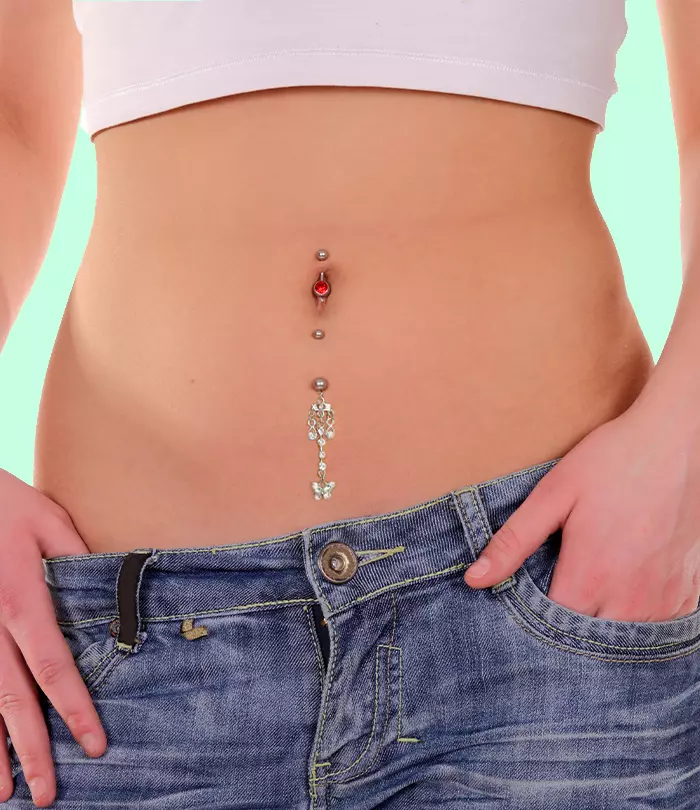

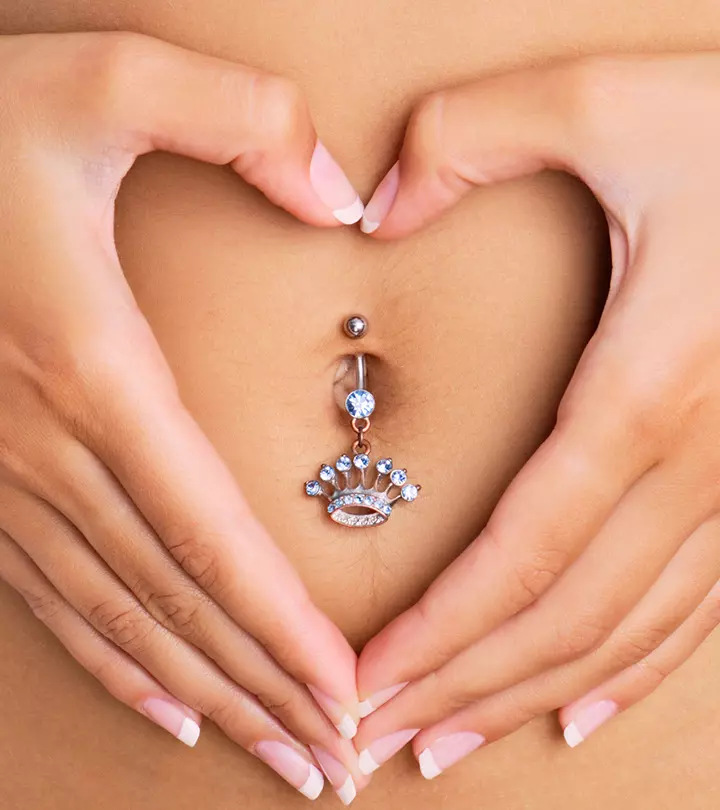
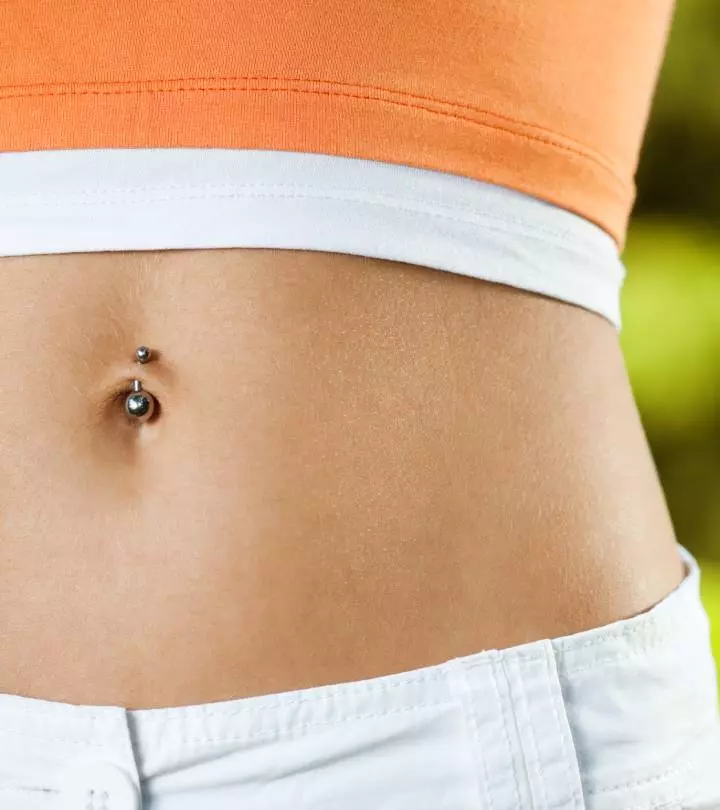
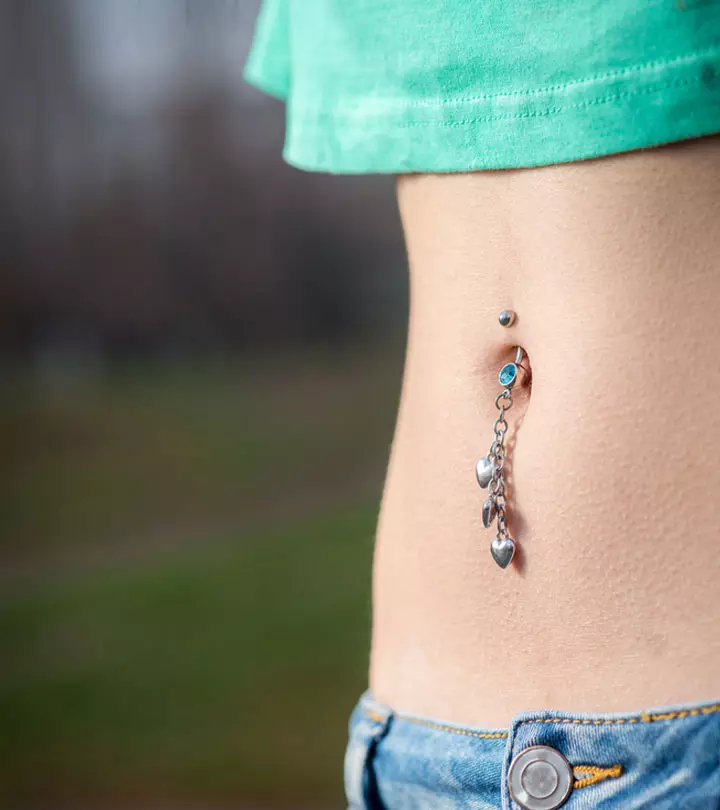
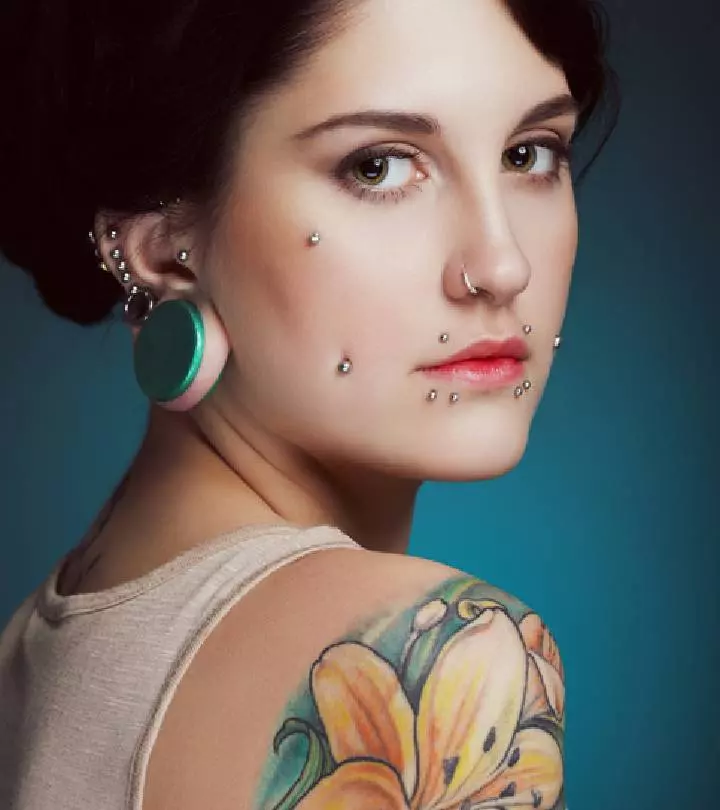
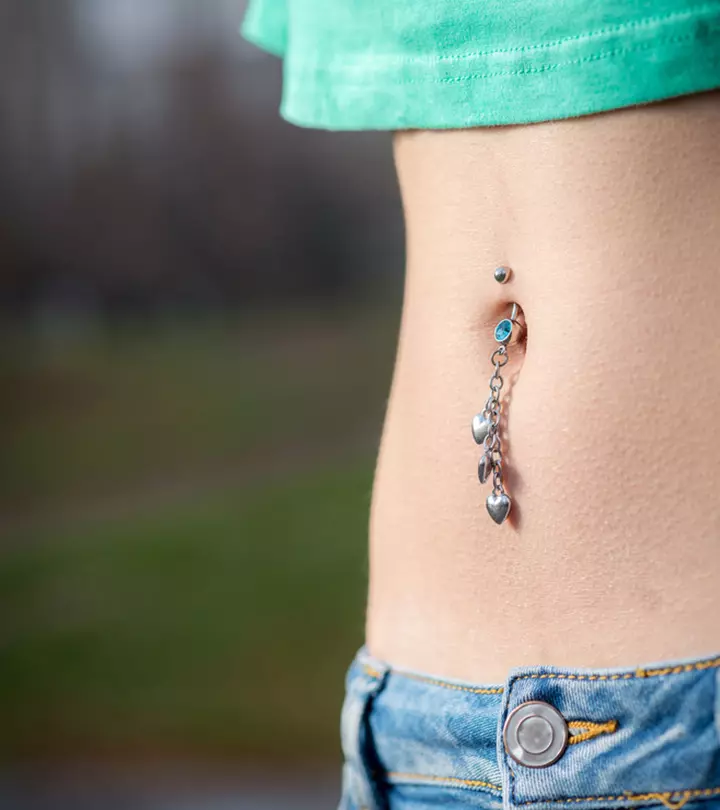

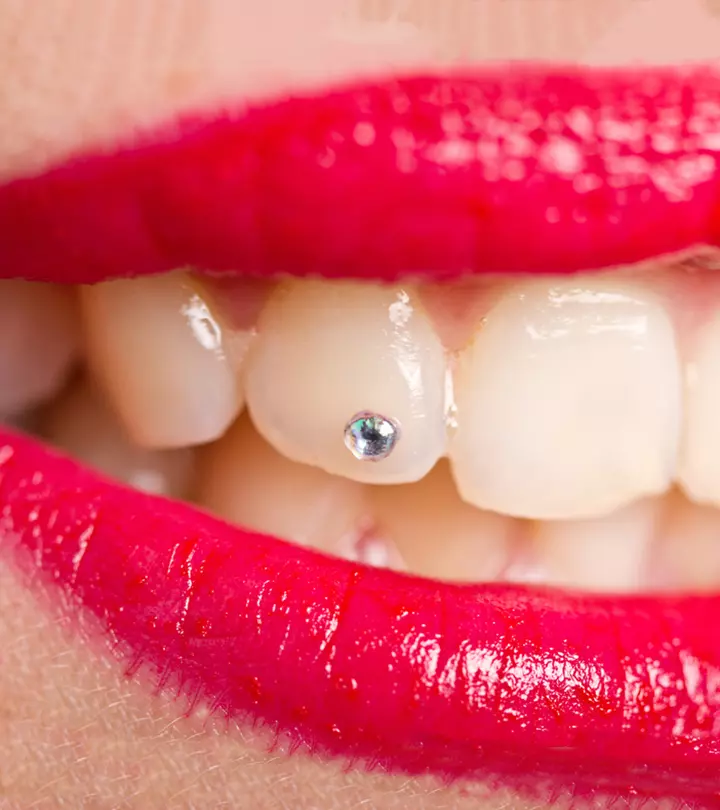
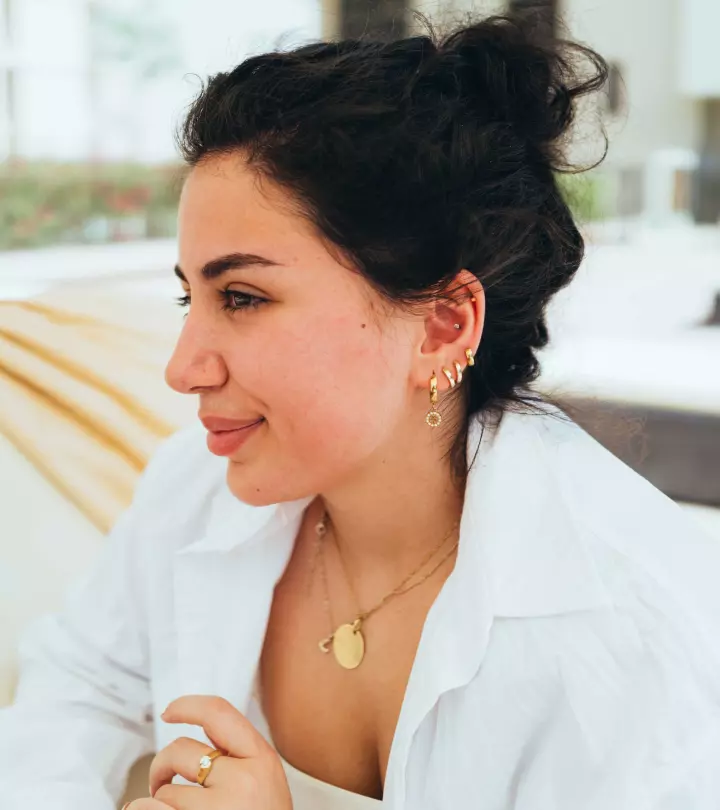
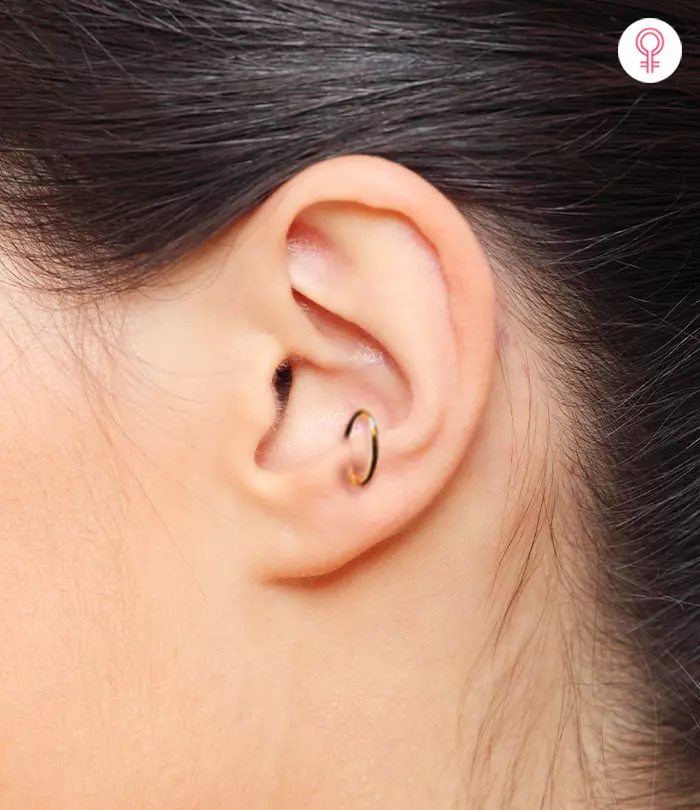
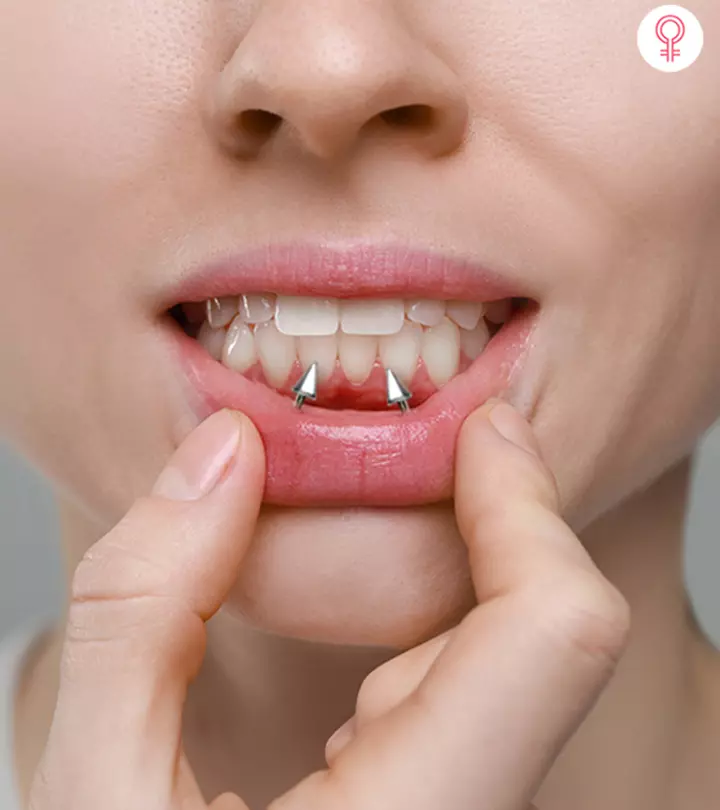

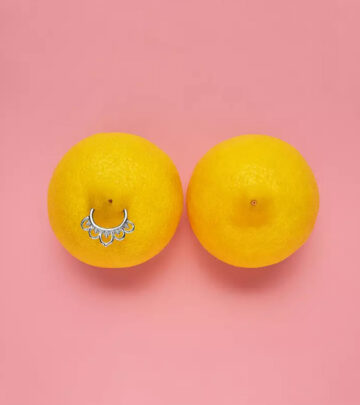
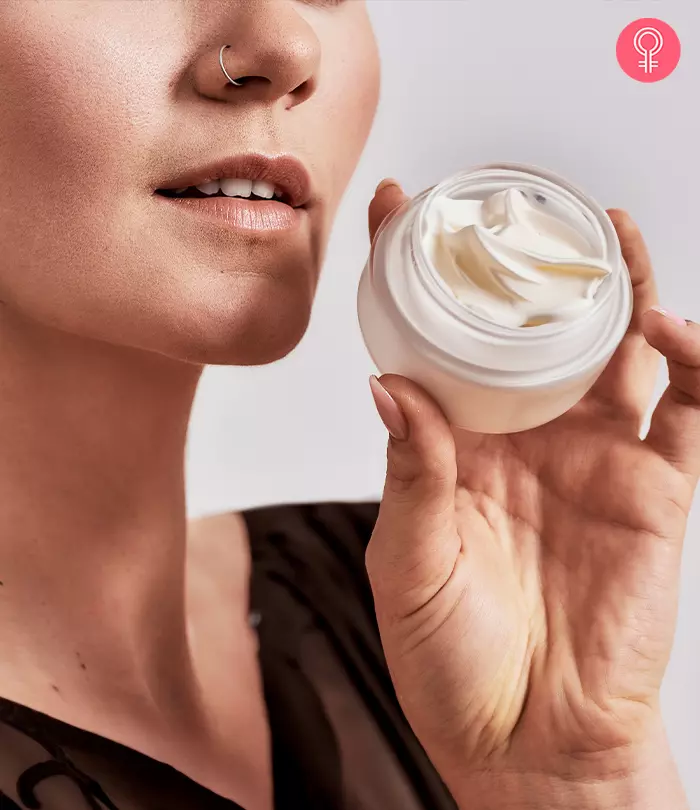
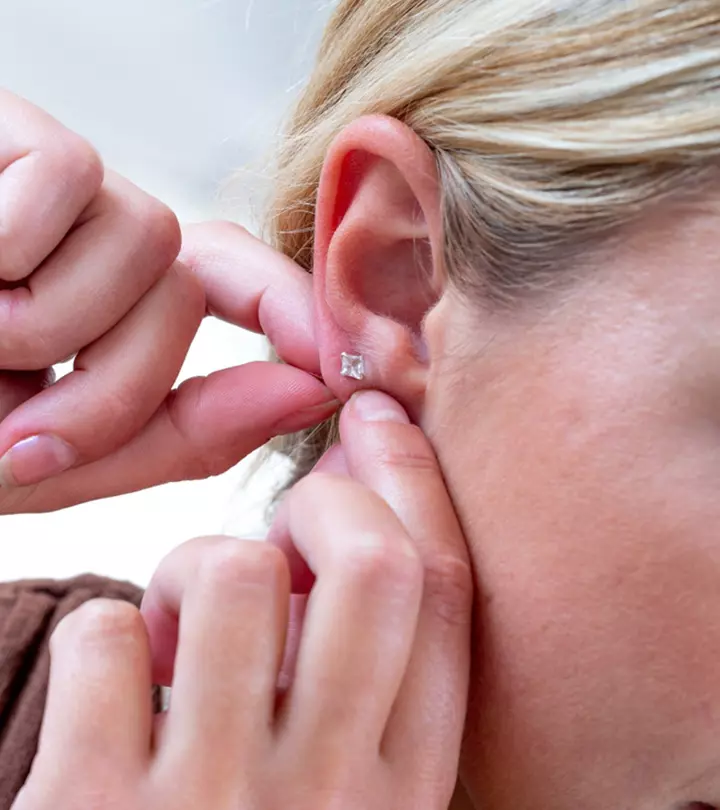
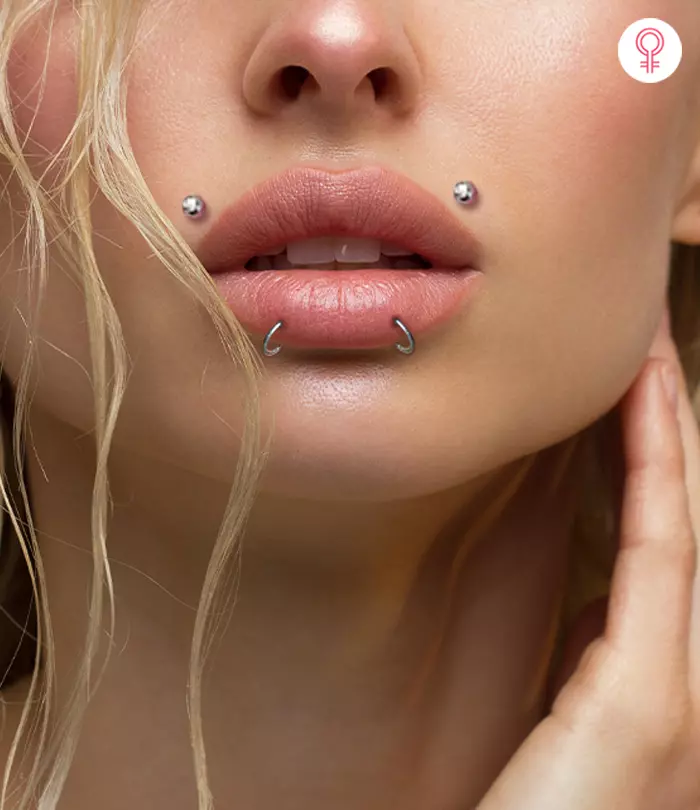
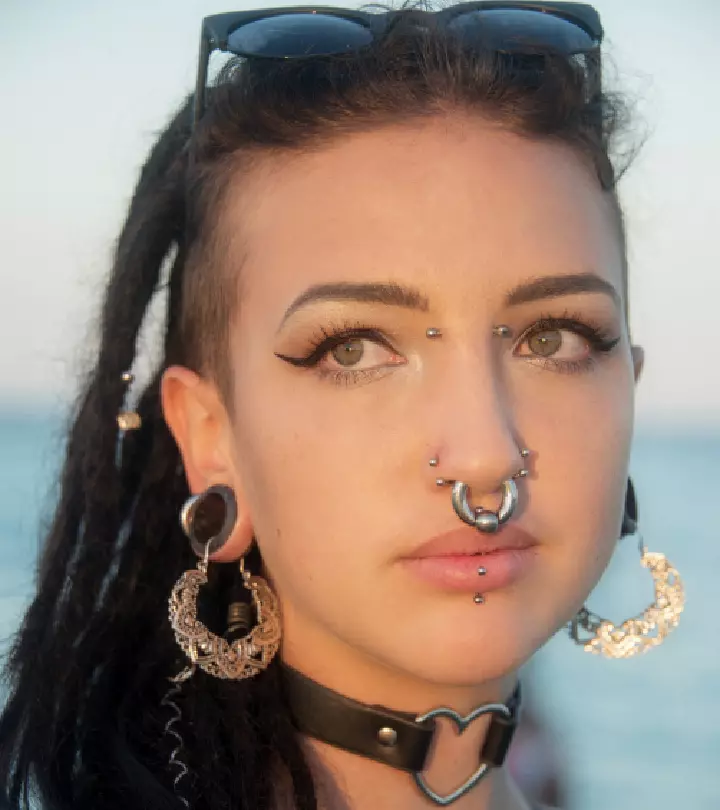
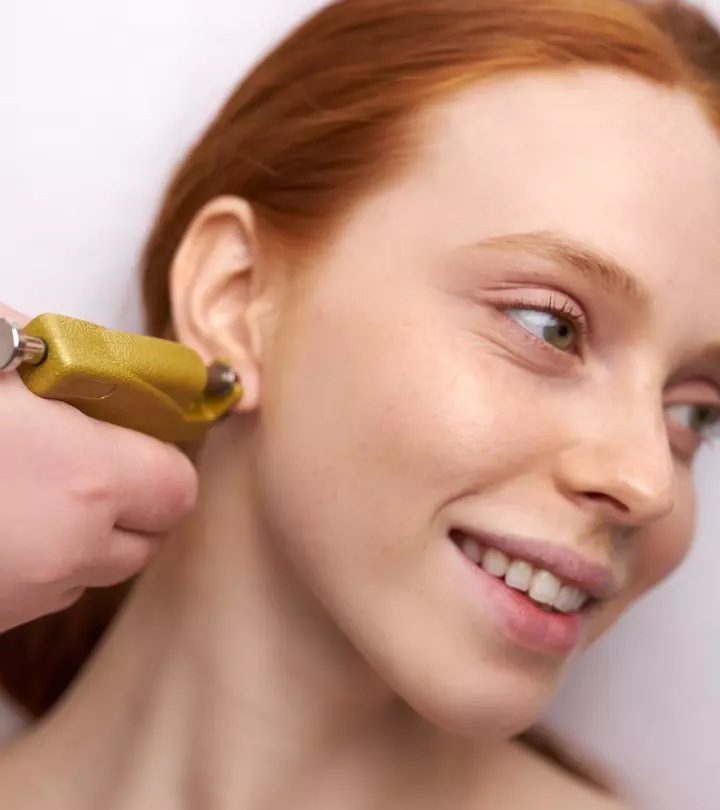
Community Experiences
Join the conversation and become a part of our empowering community! Share your stories, experiences, and insights to connect with other beauty, lifestyle, and health enthusiasts.